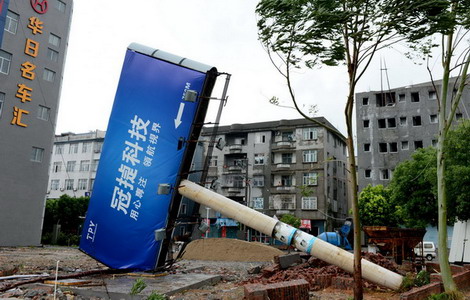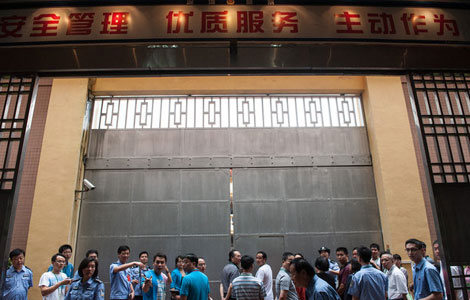

BEIJING - In the post-financial crisis era when global economic landscape is undergoing profound changes, effective economic governance is more necessary than ever.
The world's economies, eager to move beyond the crisis by enhancing their economic governance, found themselves have no choice but to take bolder initiatives to speed up and deepen their institutional reforms.
Advanced countries are busying addressing the flaws and weaknesses in their economic governance that the economic crisis has exposed.
While emerging economies including India, Mexico, Brazil and Russia are also tapping into fresh growth potential by expediting market-oriented reforms.
The reform efforts of China, the world's second largest economy, have profound significance for both itself and the world at large.
In the past six months or so, the Chinese government has unveiled a package of measures to boost growth, including removing administrative approval items, eliminating taxes on small businesses, cutting excess capacity, encouraging the development of modern service industry and rolling out the "Broadband China" strategy.
Australian economist Guo Shengxiang said that the initiatives unveiled affirmed Beijing's determination to face difficulties head-on and turn pressure into strength and motivation, adding that China has made a good decision at the right time.
Murtaza Syed, the International Monetary Fund (IMF)'s China representative said that China is very committed to structural reform, which is conducive to not only building its own economic strength but reducing international trade disputes and promoting sustainable global economic growth as well.
Recently released statistics showed the growth of China's modern service industry and emerging industries is gaining momentum, enterprises and companies have made sizable progress in their product structure adjustment, and regional development has become more and more balanced.
Syed said China's economy is showing some new features, which is expected to bring new investment opportunities for the world.
Bart van Ark, chief economist of Conference Board, a global economic research group, believed that China's economic restructuring, enhanced domestic consumption and new-type urbanization will generate knowledge spillover effect and show scale economy characteristics, which is a positive thing for the world as it will stimulate demand of many other regions in the world.
Lin Jianhai, secretary of the IMF, said the Chinese government is handling the relationship between the maintenance of a steady growth, adjustment of economic structure and advancement of reform in a proper manner, which displays the insightful vision of the new leadership.
Given the quality decision-making and positive preliminary effect of the unveiled measures, the performance of China's new leadership in the first half of this year has been quite satisfactory, said Lin, adding that the efforts of China's new leadership has helped the country grab one of the leading positions in the global race to reform.







